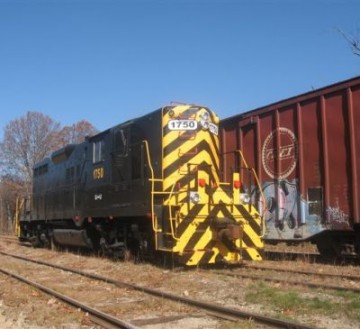Angiulo: Railroad in Grafton Subject to Federal Law
Monday, October 19, 2015

In the matter titled Padgett v. Surface Transportation Board the court had to resolve whether, or not, state and local regulations applied to a commercial project developed by the Grafton & Upton Railroad Company (“G&U”). The dispute arose because G&U embarked on a plan to create a liquid propane gas facility, which included transmission from rail car to truck for distribution, at a site adjacent to some of its railways. Completion of the project required, among other things, the installation of 80,000 gallon storage tanks for these petroleum products in a water supply protection area for the town of Grafton. For those that are unaware, petroleum products that escape their storage can introduce highly toxic chemicals into the ground and water table. This caused concern for the local population who would then have to consume the potentially tainted drinking water.
The objection to this project was premised on state law and local zoning regulations dealing with the storage of such large amounts of toxic or hazardous materials. In particular, these rules require additional permits that state and local authority have oversight in issuing. There is, however, a seperate federal board created to regulate railroad activity known as the Surface Transportation Board. Federal law on the topic gives this board exclusive jurisdiction over this industry.
Procedurally, this issue was first presented to the board itself and an administrative hearing took place. The parties on either side of that administrative hearing were the town, claiming regulatory authority over the project, and the G&U railroad contending federal law preempts the state and local laws. During that hearing the town focused on claims that the railroad company was merely a part of the project that included a seperate propane company who was managing the site and financing. In response, the railroad presented evidence that the business plan for the project gave G&U the sole authority for operating the facility on property that was part of its railways. With that evidence, the board ruled the proposed liquid propane gas facility was, in fact, an integral part of G&U's operation as a rail carrier and so federal law controlled.
With this as background, the court was asked to determine whether the board's ruling was valid. In doing so, the question was only whether facts found by the board rationally supported their finding. When the court looked back they considered that preemption is a two step analysis requiring evidence that a broadly defined concept of transportation was involved and that the transportation was conducted by a rail carrier. When it found that this test was met, and supported the boards finding, the court was also ruling that this project would be subject to federal rather than local rule.
For those concerned about energy policy, one moral may be that simply relying on state legislators and town by laws may not be enough. This case stands as a reminder that even the smallest towns in Massachusetts are part of a larger international economy that our Federal Government is designed to regulate. It follows, therefore, that to impact policies that effect energy sources, transportation, and drinking water for yourself and your neighbors you must be an active participant in electoral politics at all levels.

Related Articles
- Angiulo: SJC Says Breath Tests in Massachusetts Are in Question
- Angiulo: Elder Abuse, Powers of Attorney and Harassment Prevention Orders
- Angiulo: Supreme Court Decides When Online Threats Become Criminal Acts
- Angiulo: SJC Defines the Limits of Parental Discipline
- Angiulo: The Supreme Court, the Death Penalty, and the Constitution
- Angiulo: Drug Convictions, Firearms and the Supreme Court
- Angiulo: Unringing the Bell of Falsified Drug Tests
- Angiulo: Drug Dogs, Traffic Stops and the U.S. Supreme Court
- Angiulo: SJC Says Marijuana Cultivation Alone is Not Proof of Crime
- Angiulo: SJC Makes Adoption Easier For Same Sex Parents
- Angiulo: When is a Business Owner Responsible For a Customer’s Injury?
- Angiulo: Land of the Free, Home of Live Nude Dancing
- Angiulo: SJC Looks at Mortgage Foreclosure Process in Massachusetts
- Angiulo: Federal 1st Circuit Court of Appeals Says Growing Weed Still a Crime
- Angiulo: Employee Injuries and Employer Liability
- Angiulo: Promises Made in Auto Insurance Applications May Stick
- Angiulo: Massachusetts Motor Vehicle Stops and the Odor of Marijuana Continued
- Angiulo: Cell Phone Tracking in Massachusetts
- Angiulo: Sometimes a Spouse Really Does Get Half Your Stuff in a Divorce
- Angiulo: Overtime Pay for Employees and Employer Obligations
- Angiulo: An Insurance Agent at the Intersection of Business Model and Criminal Act
- Angiulo: Drunk Driving Charges and Commercial Driver’s License Suspensions
- Angiulo: Freedom of Speech and Political Campaigns
- Angiulo: Challenging the Legality of Motor Vehicle Stops by Police
- Angiulo: When Working From Home Causes a Lawsuit




 Delivered Free Every
Delivered Free Every
Follow us on Pinterest Google + Facebook Twitter See It Read It